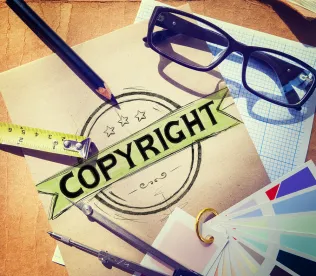Addressing the de minimis requirement of copyright infringement and the ownership of a software program’s output, the US Court of Appeals for the Ninth Circuit determined that downloading pirated software was not a de minimis act and could constitute copyright infringement even where the pirated software was never installed. The Ninth Circuit further explained that there was no copyright in the output of a software program, unless the software (as opposed to the user) was the primary author of that output. Design Data Corp. v. Unigate Enterprise, Inc., Case No. 14-16701 (9th Cir., Feb. 9, 2017) (Hawkins, J).
Unigate creates models of steel components in two- and three-dimensional CAD files using contractors in China, then sells the models to clients in the United States. Unigate advertised that it had the ability to provide its services using a CAD software program owned by Design Data. However, Unigate never purchased a license to the Design Data program and instead downloaded an unauthorized “cracked” copy of the program that allowed individuals to use the Design Data software without a license. Unigate maintained that it merely downloaded a “free demo” of the Design Data software and did not know that it was a “cracked” copy. However, at least one of Unigate’s Chinese contractors used the unauthorized version of Design Data’s software to produce CAD files.
Unauthorized use of a copyrighted work is not actionable unless it is “significant enough to constitute infringement.” The district court found that Unigate’s actions were de minimis and granted summary judgment of no copyright infringement with respect to the download. Design Data appealed.
The Ninth Circuit reversed, finding that Unigate’s actions were not de minimis and could therefore support a claim of copyright infringement. The Court noted that Unigate intentionally downloaded a copy of Design Data’s software and three patches that allowed Unigate to “crack” the software and use it without authorization. Unigate’s computers also contained files generated by the Design Data software, and Unigate advertised to its customers that it was able to use the Design Data software. Even though there was no evidence that Unigate installed the Design Data software, Unigate’s actions, when taken together, were significant enough to constitute copyright infringement.
The Ninth Circuit also determined that Design Data did not own the output of the Design Data software. Some cases suggest that the owner of the copyright in a computer program may also own the copyright in the program’s output when the program “does the lion’s share of the work” in producing the output. This would be the case, for example, when the user’s input is so marginal that the output reflects the work of the computer program rather than the user. Here, Design Data showed that Unigate imported and distributed output files from the Design Data software, but Design Data did not provide evidence that the software, rather than the user, produced the output. Design Data thus failed to prove that it held the copyright in the output files and could not prove copyright infringement by those output files.




 />i
/>i
